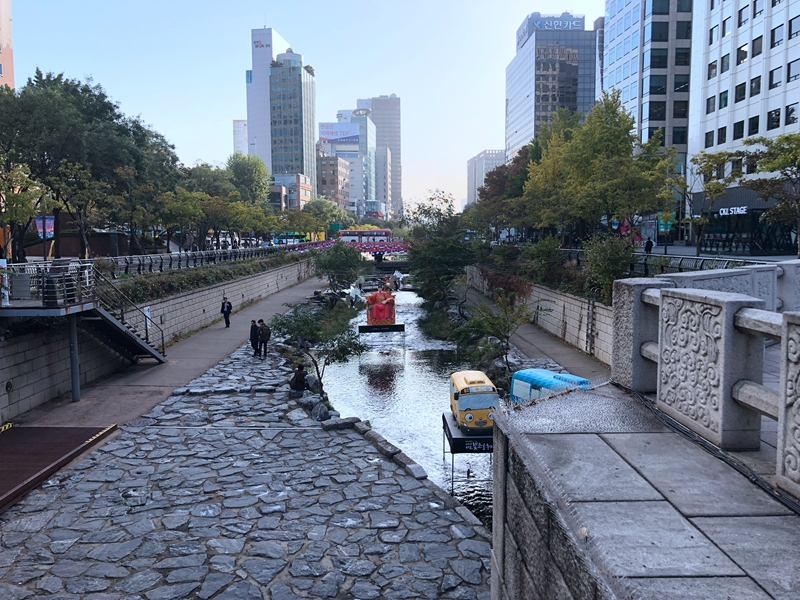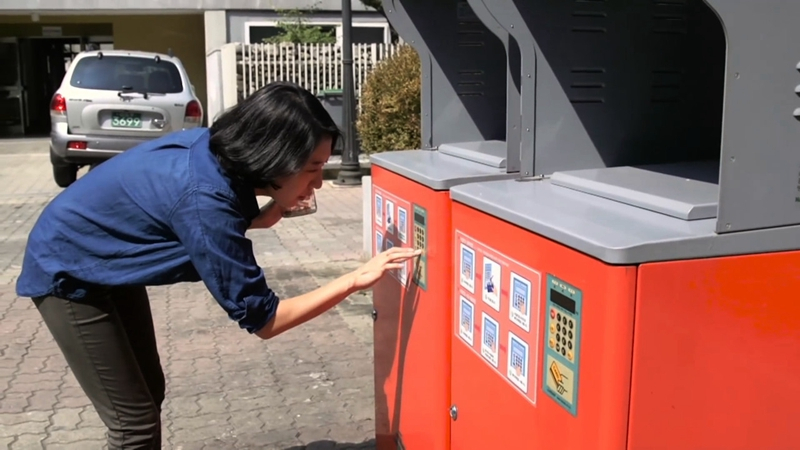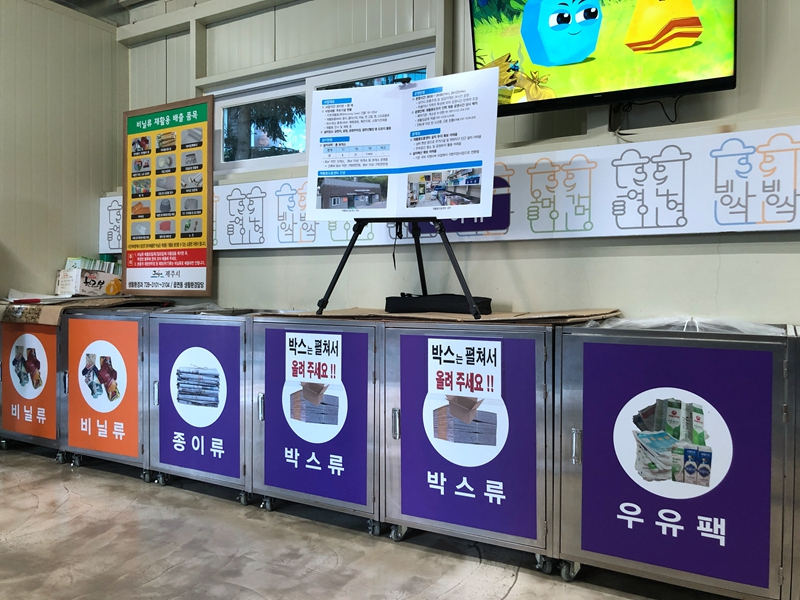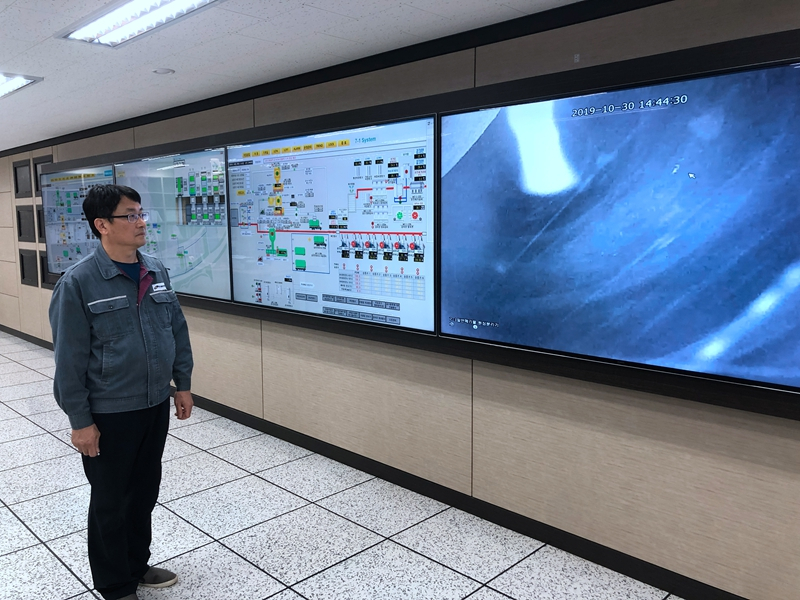
It is hard to find litter bins in downtown Seoul due to the highly organized waste management system called Jongnyangje. /CGTN Photo
It is hard to find litter bins in downtown Seoul due to the highly organized waste management system called Jongnyangje. /CGTN Photo
Being a regular smoker, two things I found myself struggling to deal with in downtown Seoul were where to smoke and where to dump the cigarette butts. Well, we all know that South Korea has strong anti-smoking laws and the city of Seoul is even harsher, so I'll focus on waste management in the country without getting too deep into the details of the smoking ban.

A Seoul resident shows us how to dispose of garbage properly. /CGTN Photo
A Seoul resident shows us how to dispose of garbage properly. /CGTN Photo
It is common to see instances such as commuters in Seoul having to carry an empty coffee cup all the way to their workplace after failing to find a litter bin, since the "measured rate system" – in which garbage must be disposed of in specified trash bags – was introduced in South Korea back in 1995.
The country has a highly organized waste management system known as Jongnyangje. The waste disposal and recycling policy is set by the ministry of environment and garbage collection is organized at a municipal level. Household food waste, recyclables, non-recyclables and large objects are disposed of separately.
There is no direct fee for garbage collection: funding comes from the sale of garbage bags that are color-coded by waste category and usable in only one district. Color-coding varies between districts, and collectors will not accept non-standard bags.
Disposal is typically centralized in large buildings. Most will have a waste disposal area, communal bins and a caretaker whose responsibility is to supervise waste disposal. If no waste disposal area or caretaker is present, garbage bags can only be left outside the house between certain hours on the designated day. These hours are usually between late evening and early morning.

A garbage transfer station in Jeju Island, where household food waste, recyclables, non-recyclables and large objects are disposed of separately. /CGTN Photo
A garbage transfer station in Jeju Island, where household food waste, recyclables, non-recyclables and large objects are disposed of separately. /CGTN Photo
Paper, glass, steel, fabrics and plastics are recycled in South Korea, though recycling arrangements vary from place to place. Recycling must always be separated into types and compressed or flattened before disposal.
In large buildings, recyclables must be separated into specific communal bins. Large waste objects, such as bicycles and televisions, will be collected if left in the general collection area with the correct large object disposal sticker attached to them. Large object disposal stickers of different types can be bought at district offices.

Bang Ki-Soo, the supervisor of a clean net station in Sejong, told CGTN that the Auto Clean Net System collects both ordinary garbage and food waste. Garbage is turned into solid fuel while the food waste is used as a source of bio energy. /CGTN Photo
Bang Ki-Soo, the supervisor of a clean net station in Sejong, told CGTN that the Auto Clean Net System collects both ordinary garbage and food waste. Garbage is turned into solid fuel while the food waste is used as a source of bio energy. /CGTN Photo
And in Sejong, South Korea's new administrative capital, the concept of a zero-waste city was created based on zero-waste principles. "The Auto Clean Net System collects both ordinary garbage and food waste. Garbage is turned into solid fuel while the food waste is used as a source of bio energy. The local government is committed to making Sejong a clean city and contribute to improving environmental quality across the country," said Bang Ki-Soo, the supervisor of a clean net station in Sejong.
The Auto Clean Net System is a clear example of how reusing, reducing, and recycling as much as possible can have a positive result. And the country is on a steady path to becoming a zero-waste society. The government has set a goal to accomplish a 3 percent landfill rate and 87 percent recycle rate by 2020, according to South Korea's ministry of environment.